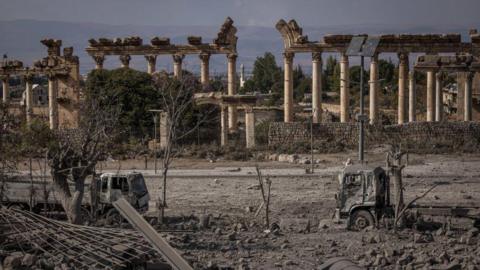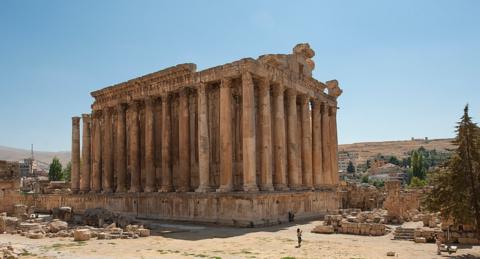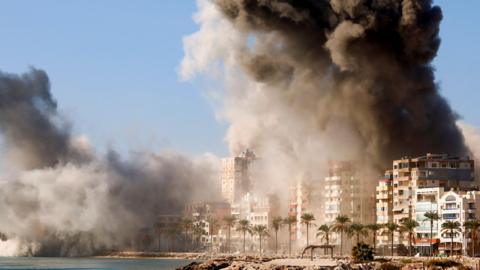Graham Philip, the Durham University archaeology professor, says he doesn’t believe Israel would intentionally hit Baalbek or other sites.
"It's hard to see what they would gain in a military sense, bombing a Roman temple."
But he cautioned about the risk of some bombs or missiles going off target and hitting the ruins, even unintentionally: "If you drop enough ordnance, not all of that lands within 25 metres of the target."
Mr Philip has been closely monitoring the impact of Israel's strikes on heritage sites in Gaza where it is fighting Hamas, leading a British university team documenting archaeological destruction across the territory.
He says it is still too early to assess how much damage has been done by the current wars in Lebanon and Gaza. But a Unesco survey published in September found that 69 cultural heritage sites in Gaza had been damaged by the war, which was triggered by the Hamas attacks of 7 October 2023.
The oldest mosque in Gaza, the Great Omari Mosque, is one. It was built on the site of an ancient Philistine temple before being converted into a church and then a mosque. It was reportedly mostly destroyed by an Israeli strike in December 2023.
Mr Philip says these ancient sites are not only important anchors to the classical past, but are "almost like the soul of a population".
"Imagine how people would feel in Britain if the Tower of London or Stonehenge were destroyed.
"It's part of their identity."


